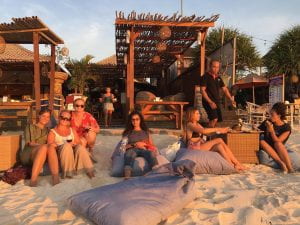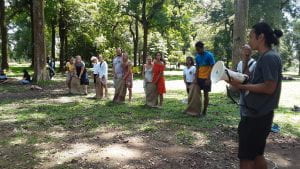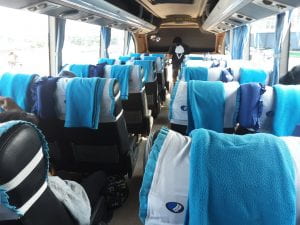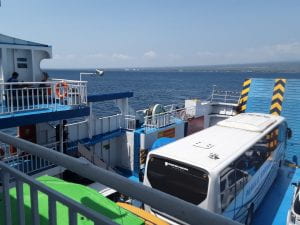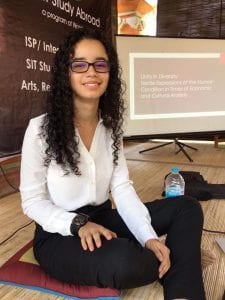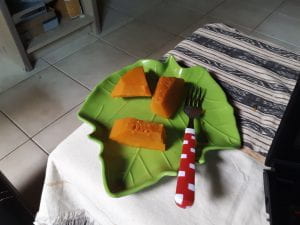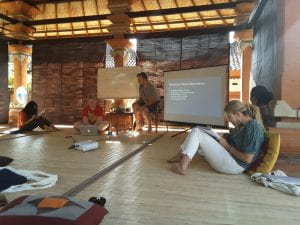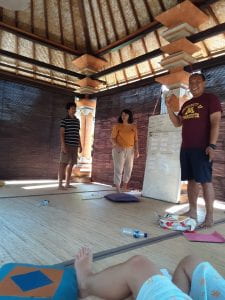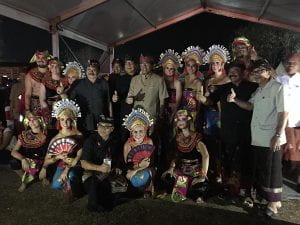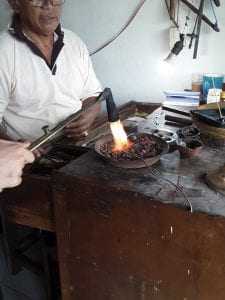The semester came to an end very quickly, but it did feel like an end to me. I successfully returned to Bali, travel-worn but ready to tackle the last few pages of my incomplete draft; and after the blur of days featuring final presentations on our ISPs, the very last few days of the program were blissfully devoid of immediate academic responsibility. We spent those days simply enjoying each other’s company. For me, it was a lovely, cathartic end and a great way to kickstart my transition from Indonesian life to American life.
It was during those last few days of my Independent Study Project (ISP) in Jakarta that it really dawned upon me that I would be returning to America in a very short span of time. Although I hadn’t exactly gotten completely accustomed to living in Indonesia by then, I felt anticipation that my world was about to change dramatically—but this time in reverse. I couldn’t clearly anticipate what reverse culture shocks would hit me, but I anticipated culture shocks nonetheless.
While in Indonesia I had developed characteristics that I had somewhat expected to lose once back in America. The language Bahasa Indonesia for one; but I worried most that I would lose my newfound self-confidence to navigate unfamiliar situations. On the other hand, I was both excited and trepidatious over what new skills or ticks I would retain after returning to America. I was curious: How different was I truly from pre-program Eli?
I returned to America as the winter season begins. In my case, I returned to a cold, grey, and foggy homescape that was made all the more dramatic by the size of everything. Everything seemed wide and open, giving me the impression that they were spaces that could be filled but weren’t. Everything seemed unnecessarily large.
As I am with this landscape, I am still in the process of configuring myself. I spent a whole semester being forced by new circumstances to self-examine, but I am not done, yet. I am still trying to pinpoint the new habits and perspectives that I have absorbed and carried within me to America. Size is the only example so far that I have been able to clearly recognize. Otherwise, I have not yet experienced any dramatic reverse culture shocks.
During the last few weeks of the SIT Program, I amused myself by wondering and worrying about the reverse culture shocks that I would have to face and navigate upon my return. Thus, it is to my great surprise and confusion that, other than the great big openness of America, I have not yet experienced any differences that lead to “shock.” Forgive me if I speak too soon, but I feel that I have reacclimated quite smoothly. Does that mean that I have not changed at all?
I would say no. Certain habits of mine that I held previous to my semester abroad are noticeably gone, and in their place, I utilize new habits that I formed in Indonesia. Although, I find that the whole transition for me from Indonesia to America has not been very exciting. Yes, I feel that I am different than before studying abroad, but I don’t feel like an entirely new person. I am still the same person with the same personality but with some tweaks.
I suppose if I were to try and spin some greater wisdom from my experience, I would both comfort and temper those who expect great grand changes to result from living in another country. For those who are worried that they won’t recognize themselves after their experience, well, don’t worry about it. In my case, I am still myself, despite the developments that I have gained along the way. And to those who are concerned that they won’t change in any way, well, depending on where you go and what you study, I believe that it’s highly unlikely that you won’t experience some shift in yourself. It’s just that those shifts may be more subtle than you realize.
Thank you, and until next time!

